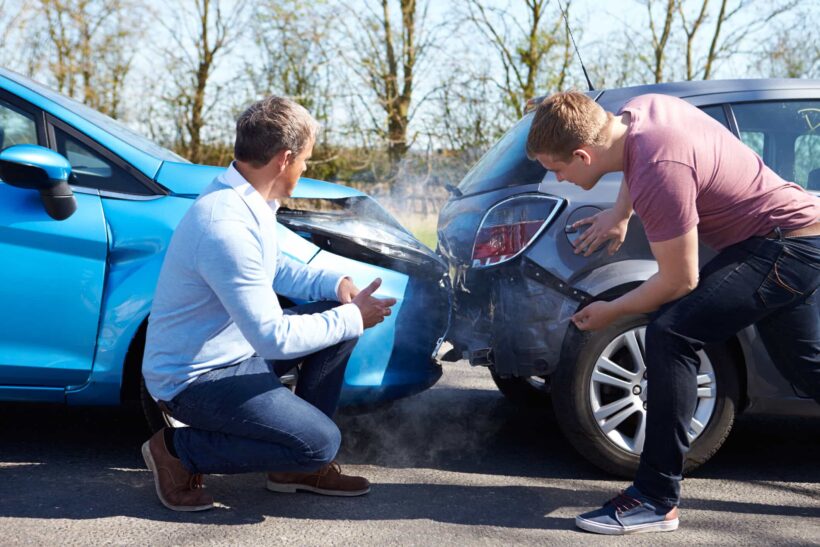The sudden jolt, the screech of tires, the aftermath of a car accident can be a disorienting and distressing experience. In those pivotal moments, maintaining composure is paramount. What to do next is equally important. From ensuring immediate safety to navigating the intricacies of insurance claims and legal proceedings, each step is a crucial component of a comprehensive strategy designed to safeguard well-being and rights alike.
As the dust settles and emotions run high, the importance of a clear-headed approach cannot be overstated. You can use this article as a checklist, but it’s more than that – it’s a companion through the challenging terrain that follows a car accident.
With a focus on practicality and empathy, it offers a step-by-step journey toward recovery, offering insights into the complexities of the process and providing the knowledge needed to make informed decisions.
Whether you’re grappling with medical concerns, insurance intricacies, or the emotional toll of the incident, this guide is crafted to empower, inform, and support individuals on their path to recovery after a car accident.
Ensure Safety at the Scene

In the wake of a car accident, the first moments are crucial. Emotions may run high, but it’s essential to keep a clear head and take decisive actions. The minutes following the incident set the stage for what comes next.
Your safety and the safety of others take precedence. Move to a safe location, activate hazard lights, and alert oncoming traffic to the situation. Dial emergency services immediately, ensuring that medical assistance and law enforcement are on their way.
Seek Medical Attention
Even seemingly minor injuries should not be dismissed. Seeking immediate medical attention is crucial for your well-being and for documenting injuries for insurance claims. Remember, some injuries may not manifest immediately, so ongoing medical care is essential.
Contact Emergency Services
Calling the police and reporting the accident is a vital step. The police report will serve as an official record of the incident, providing crucial details for insurance claims and legal proceedings. Make sure to obtain a copy of the report for your records.
Exchange Information
After ensuring safety and seeking medical attention, exchange information with the other party involved. This includes names, contact information, insurance details, and license plate numbers.
Additionally, gather information from any witnesses present, as their accounts may prove invaluable.
Document the Scene
Photographs are powerful pieces of evidence. Capture images of the accident scene, vehicle damage, and any relevant signage. This documentation can play a pivotal role in supporting your insurance claims and any potential legal actions.
Do Not Admit Fault
In the chaotic aftermath of a car accident, emotions may prompt you to make statements that could be used against you later. Avoid admitting fault at the scene. Fault determination is a complex process best left to insurance and legal professionals.
Notify Insurance Company

Promptly notify your insurance company about the accident. Provide them with accurate and detailed information about the incident. Be prepared to share the police report, witness statements, and any photographic evidence you’ve gathered.
Preserve Evidence
Preserving evidence is key to building a strong case. Keep records of medical bills, repair estimates, and any other expenses related to the accident. This comprehensive documentation will support your claims and help in the resolution process.
Consult with an Attorney
In cases of serious accidents or when faced with complexities, seeking legal advice is prudent. A specialized car accident attorney is well versed in navigating the intricacies of such cases. They can provide guidance on the best course of action and represent your interests in negotiations or legal proceedings.
Choosing the right car accident attorney is crucial. Look for someone with experience in handling similar cases, a solid track record, and a commitment to advocating for their clients.
A legal professional can help you understand your rights, evaluate the strength of your case, and guide you through the legal process.
Understand Insurance Coverage
Understanding your insurance coverage is vital for a smooth claims process. Different types of coverage, such as liability, collision, and uninsured/underinsured motorist coverage, come into play.
Familiarize yourself with the terms and conditions of your policy to ensure you receive the compensation you deserve.
Follow Up on Medical Treatment
Consistent medical treatment and rehabilitation are integral to your recovery. Follow through with prescribed treatments and attend all necessary appointments.
Not only is this crucial for your health, but it also helps in building a robust case by maintaining detailed medical records.
Know Your Rights
Knowing your rights after a car accident is empowering. Familiarize yourself with state-specific regulations and statutes of limitations.
Being informed about what you’re entitled to and the legal avenues available to you ensures you can make decisions that align with your best interests.
Emotional Support
Beyond the legal and logistical aspects, don’t underestimate the emotional toll a car accident can take. Reach out to friends, family, or professionals for support. Dealing with the aftermath of an accident is not only a physical and legal process but an emotional one as well.
Final Words

In the aftermath of a car accident, the road to recovery is laden with challenges, but armed with knowledge, individuals can navigate this journey with greater resilience. Remember, each step – from prioritizing safety at the accident scene to consulting with a car accident attorney – plays a pivotal role in safeguarding your well-being and asserting your rights.
It’s also essential to recognize that the path to recovery is multifaceted. Beyond the logistics of claims and legalities, the emotional toll cannot be overlooked.
Seek support from friends, family, and professionals as you navigate this challenging time. In the face of adversity, resilience is born from informed decisions, and by following the guidance laid out in this guide, individuals are better equipped to embark on a journey of recovery that prioritizes their physical, emotional, and legal well-being.
Remember, knowledge is a powerful ally, and in times of uncertainty, it serves as a beacon, illuminating the path toward a brighter future!

